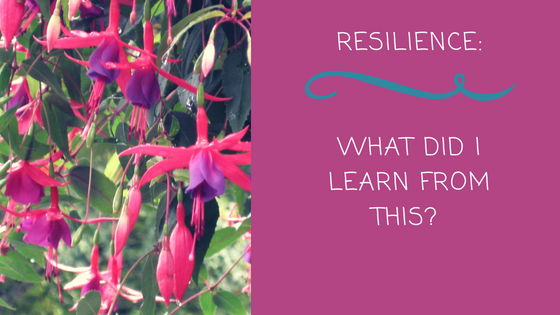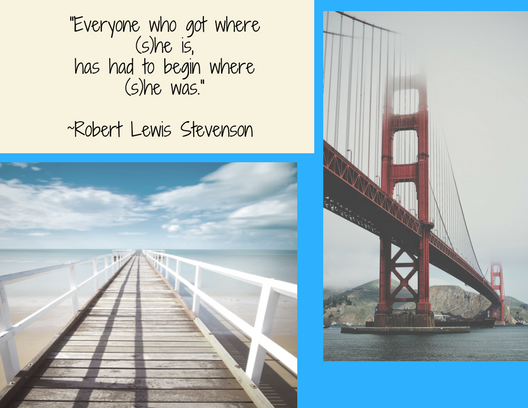|
"I thought my situation unique and supposed I was falling apart in an idiosyncratic way. In one sense, I was. My particular life exhausted and depleted me. But I now realize my experience of a crisis was common. For their own reasons, many people politely fall apart at some point in their lives. How they regroup and move on determines what their future will be. Growth is the only cure for great sorrow or an identity crisis. Recovery requires the building of a roomier container in which to hold our experiences. It helps to put our suffering in context and to see our lives as part of a larger whole. All experience can be redemptive if we ask, "What did I learn from this?" --excerpt from-- "Seeking Peace: Chronicles of the Worst Buddhist in the World" by Mary Pipher Wow. Isn't that wonderful? All of it. Of course the content. How a traumatic experience and what follows is unique to each person and at the same time universal to all of us. How each in our own way, and yet also in a universal way, fall apart, break open, and lose something important and foundational to who we are and what we believe about life. And then how we regroup, get up again, and move forward. And I really resonate with the phrase, "building a roomier container". That captures so much, doesn't it? We make room for the experience, to find a way for it to make sense in the larger scope of who we are and how we live. Ties in so nicely with the previous post about resilience. Something else that really caught my attention was not just what she said, but the way she said what she said. As I've mentioned before, I love to read. It's been one of my favorite things to do since I was a kid. What I realize after reading this passage is that I usually focus on the content of what I read, the story, does it interest me, am I invested in the story, the characters? I spend much less attention on how something is written. Here with this passage, I am so taken with both, content and prose. By the way, read more Mary Pipher. Such a gentle, thoughtful, authentic voice. How about you? Does this passage please you? Do you have parts of books that do that for you?
0 Comments
 "She stood in the storm and when the wind did not blow her away, she adjusted her sails." ~Elizabeth Edwards Charles Krauthammer, who was a Pulitzer Prize winning columnist for the Washington Post, died earlier this summer. He was by no means a political kindred spirit of mine, but I was drawn to read more about his life. I didn't know until recently that he was paralyzed in a diving accident when he was a first year medical student. With the help of many, but one professor in particular, he graduated from medical school and became a psychiatrist. He later became a political columnist. The Washington Post opened their archives and I read some of his columns. One he wrote about resilience. In it, he talks about Roy Hobbs, the hero of Bernard Malamud’s “The Natural,” a baseball prodigy who tries to return to the game after being shot. “No one knows why Hobbs is shot,” he wrote. “It is fate, destiny, nemesis. Perhaps the dawning of knowledge, the coming of sin. Or more prosaically, the catastrophe that awaits everyone from a single false move, wrong turn, fatal encounter. Every life has such a moment. What distinguishes us is whether — and how — we ever come back.” I have been thinking more about trauma and how it changes lives. As Dr. Krauthammer says, "every life has such a moment.". I have had mine. You have had yours. I feel comfort knowing that, as Robin Roberts' mother told her when she was diagnosed with cancer, "everybody's got something". Knowing that bad things happen to all of us, that it is part of the human condition, somehow feels better than isolating with the idea that it only happened to me. And I've been thinking about resilience too. Here's a simple definition. Resilience is being able to become strong, healthy or successful again after something bad happens. Bouncing back. Getting back up and moving forward. Resilience is understanding that the future will not be like the past. Learning from what's happened. Perspective taking. Staying flexible. Adapting to the reality in front of you. Remembering what matters to you and moving towards it. Connecting with others, we are not alone. And at the risk of being a Pollyanna, life can be better on the other side of trauma. While it can seem so bleak in the vortex of the emotions that swirl around a traumatic event, I have seen how the very awfulness of the event, how when everything you thought you could count on was suddenly not there, that upending of what feels like everything, can become the very thing that allows you to start again. New and yet more you than you've ever been. Fresh but not naive. Wiser but not cynical. Allowing experience to make us more of who we already are, that's resilience. :-) I love this quote from a 2006 commencement speech by Stephen Colbert at Knox College in Galesburg, Illinois: “Cynicism masquerades as wisdom, but it is the farthest thing from it. Because cynics don’t learn anything.
Because cynicism is a self-imposed blindness, a rejection of the world because we are afraid it will hurt us or disappoint us. Cynics always say no. But saying ‘yes’ begins things. Saying ‘yes’ is how things grow. Saying ‘yes’ leads to knowledge. ‘Yes’ is for young people. So for as long as you have the strength to, say ‘yes.’” Open hearted. ♥ Try it. Take a chance. Experiment. Nice. "I am not what happened to me. I am what I choose to become."
~ Carl Jung "Things turn out best for the people who make the best of the way things turn out." ~ Art Linkletter At first read, I thought these two quotes were dialectics, that is opposing sides of the same idea. But reading them over and over, I think they are saying the same thing. That while we often don't control what life puts in front of us, we do control what we do with it, how we approach what life puts in front of us. Making the choice to focus on what we can control, even if it's only our response or reaction. Effective. |
Welcome
|
Carol J. Tadeusik, Ph.D.
Conveniently located in the South Square area of Durham, North Carolina
@copyright 2000-2019

